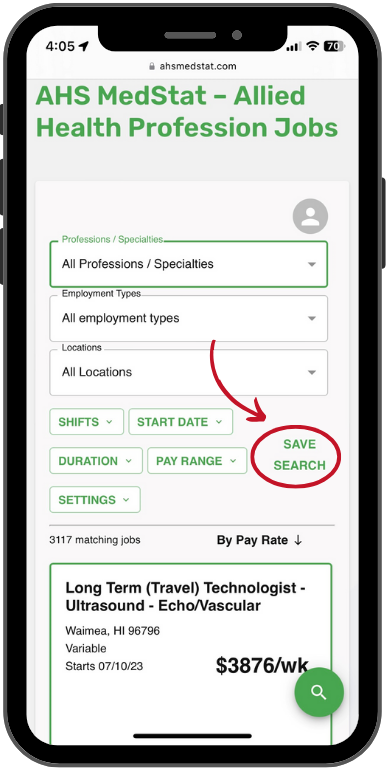Do you often feel exhausted or unfocused while on night shift in allied health jobs? The way you nourish yourself before, during, and after a shift can have an enormous impact on how energized and productive you are.
By introducing simple yet effective eating and nutrition strategies for maintaining energy levels during shift work, it is possible to stay alert, sharp-minded, and energized when managing a grueling schedule.
As a healthcare worker, it’s important that you’re able to function at optimal levels both mentally and physically while working in allied health jobs. Remember, your recruiter is here to support you every step of the way—don’t hesitate to reach out for information at any time!
Make Sure Your Meals and Snacks Are Balanced
When you’re working a long shift in allied health jobs, a balanced diet is one of the most important ways to maintain optimal physical and mental performance. Creating well-rounded meals and snacks doesn’t have to be complicated or time-consuming. By pairing certain food groups together, you can boost your energy levels and promote sustained focus throughout your shift.
For example, try pairing a complex carbohydrate like brown rice with a lean protein source like grilled chicken for a satisfying and nutritious meal. Or, snack on some fresh veggies with hummus to get a quick boost of energy without the sugar crash. These tips and tricks can make all the difference in keeping you fueled and focused on the job.
Try to Eat Your Main Meals within the Same Window of Time Each Day
Working shifts can be challenging and often leaves us with little time for regular meals. However, maintaining a routine of eating meals within the same window of time, no matter the shift, can have significant benefits for our bodies. Eating at regular intervals helps our body regulate its processes, improve digestion, and keeps our energy levels steady as we move through the day on the job.
While it may be tempting to reach for a quick fix, taking the time to plan your meals and sticking to a schedule pays off in the long run. Your body will thank you, and you’ll be better equipped to stay focused and energized throughout your shift.

Help Your Body Fight Sleep Deficiency with Healthy Supplements
Shift workers in allied health jobs often face a variety of challenges, including the profound impact of disrupted sleep on their health and well-being. These sleep disturbances can lead to potential nutrient deficiencies that affect energy levels, immunity, and overall health. Fortunately, supplements can help fill gaps in nutrition and improve health outcomes for shift workers.
Some of the most highly recommended supplements for shift workers include vitamin D, magnesium, and melatonin. Vitamin D supplements can help counteract the reduced exposure to sunlight during night shifts while magnesium can help with relaxation and better sleep quality. Melatonin also serves as a useful supplement to help regulate sleep-wake cycles and improve sleep quality.
Drink Caffeinated Drinks Mindfully
For many of us, caffeine is a vital element of our workday. However, it’s essential to use caffeine strategically and not rely on it too heavily. When consuming a caffeinated beverage, it’s essential to drink it slowly and pay attention to your body’s response. A sudden energy boost might seem like a positive outcome, but it’s crucial to remember that caffeine’s effects are temporary. Taking it slowly will help you feel more alert and focused for longer periods.
Additionally, monitor your body’s response to caffeine carefully. If you begin to experience jitters or anxiety, it’s best to cut back or switch to decaf. Remember, caffeine can be a useful tool, but it’s essential to use it wisely.
Keep Stress Eating Under Control
Stress eating is a common response to challenging shift work that can undermine the best dietary intentions. The physiological reason for this response lies in our evolutionary history. When under stress, the body releases cortisol, a hormone that potentiates the “fight or flight” response and also stimulates hunger. To counteract stress eating, it’s essential to develop strategies that shut down this stress response on the spot.
One effective method is to incorporate mindfulness techniques into your routine. Taking a moment to focus, breathe, and ground yourself in the present can disrupt the stress response before it triggers overeating. Exercise is another powerful tool in combating stress eating. Not only does it help divert attention away from food, but it also encourages the release of endorphins which are natural mood enhancers. And remember, it’s crucial to maintain a balanced diet, as poor nutrition can also exacerbate stress responses. By implementing these strategies, shift workers can better manage their stress, avoid falling into the trap of stress eating, and maintain a healthier lifestyle despite the challenges of their work schedule.
Stay Hydrated While on Shift in Allied Health Jobs
Staying hydrated during your shift in allied health jobs is vital, not just for maintaining optimal bodily functions, but also for keeping energy levels stable and warding off feelings of fatigue. Start your shift with a large glass of water, and aim for consistent hydration throughout the day by keeping a water bottle at your workstation and taking regular water breaks. Avoid sugary drinks, as they can lead to energy crashes and increased thirst. Instead, consider adding slices of fruit like lemon or cucumber to your water for a refreshing flavor boost. Drinking herbal teas or clear broths can also contribute to your daily fluid intake.
Listen to your body’s signals – often, feelings of fatigue or a lack of concentration can indicate that you’re not drinking enough water. By integrating these practical hydration strategies into your daily routine, you’ll be better equipped to stay alert, focused, and physically at your best during your shift.
Be Aware of Your Gut Health
Maintaining gut health while working night shifts in allied health jobs can be challenging, as our bodies are naturally programmed to slow digestion during nighttime hours. When we eat at night, it’s not uncommon to experience symptoms like bloating, pain, cramping, diarrhea, or nausea. However, by paying attention to our dietary choices and eating habits, we can manage and prevent these gut issues.
Consuming smaller, lighter meals and snacks during night shifts can help as the body can more easily digest them. Hydrating well can also aid digestion and reduce bloating. Incorporating probiotic-rich foods like yogurt, kefir, or fermented vegetables can support a healthy gut flora, further aiding digestion, and reducing discomfort.
Take time to eat mindfully — chewing thoroughly, eating slowly, and not rushing meals — can significantly improve digestion and reduce symptoms. Avoiding hard-to-digest or gas-forming foods, such as beans, lentils, broccoli, and carbonated drinks, can also minimize digestive discomfort.
Support for You in Allied Health Jobs with AHS MedStat
At AHS MedStat, we appreciate the demanding nature of travel allied health jobs and understand that managing health and wellness while on the go can be challenging. We are committed to providing unwavering support to our valued healthcare professionals in every possible way. Whether it’s offering health tips, providing quality assignments, or simply lending a listening ear during tough times, we strive to be a reliable partner in your journey. We believe that your well-being is crucial to your ability to deliver the best possible patient care, and we’re here to support you every step of the way. Contact one of our supportive recruiters now to find out about job opportunities for you!


